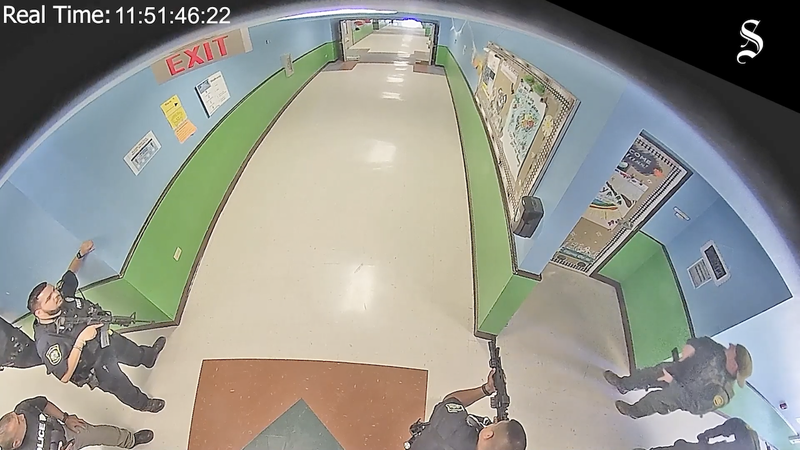Texas Schools to Offer DNA Kits to Help Identify Kids in 'Emergencies' Like Mass Shootings

Public school districts in Texas will soon start offering DNA and fingerprint kits to families of students as part of a law to help identify children in case of an “emergency,” according to a new report from the Houston Chronicle. And while the law never explicitly says it’s for identifying kids whose bodies may be torn to shreds by a school shooter with a high-powered rifle, that’s all any parent can think about, since that’s what happened in Uvalde earlier this year.
The DNA and fingerprint kits, which are available for kids from kindergarten to 8th grade in Texas, can be stored at home or given to the school or local police department, depending on the wishes of parents and guardians. The new program is part of a Texas law passed in 2021 that makes clear the DNA samples and fingerprints are voluntary. And it’s billed as something that can be kept on file just in case children need to be identified by strangers.
Read more
Asus Made a Kitchen Gadget That Tells You When Fruits and Veggies Are Actually Clean
I Drank Dying Glacier Water, and All I Got Was a Deeper Feeling of Dread
“Participation in the program is completely voluntary and allows parents to take, store and control their child’s fingerprints and DNA in their own home in the event that is ever needed,” a spokesperson for the Canutillo school district told a local CBS affiliate.
Some parents in Texas are understandably upset about the entire idea of taking their kid’s DNA, noting that it does nothing to prevent school shootings.
“DNA or fingerprints will not make my kid safer,” one parent from the Houston Independent School District told the Houston Chronicle.”It will help with identification afterwards.”
In Uvalde, where 19 children and two teachers were murdered while police waited outside, many of the kids had their bodies so destroyed by the killer’s bullets that parents were asked to submit DNA samples to help identify their kids. In fact, at least two of the kids murdered at Uvalde were described as “decapitated” by the gunman’s AR-15, according to Dr. Roy Guerrero, a pediatrician who was working at Uvalde Memorial Hospital as children were brought in.
“I had heard from some of the nurses that there were two dead children who had been moved to the surgical area of the hospital. What I did find was something no prayer will ever relieve,” Dr. Guerrero testified to a congressional hearing the following month.
“Two children, whose bodies had been so pulverized by the bullets fired at them, decapitated, whose flesh had been so ripped apart, that the only clue as to their identities was the blood-spattered cartoon clothes still clinging to them. Clinging for life and finding none,” Guerrero said.
Minor gun reforms were passed in the wake of Uvalde, though they failed to address any of the major proposals by Democrats, including the desire to raise the age to purchase a gun, a proposal to ban assault weapons as the country had done in the 1990s, and to expand universal background checks.
The U.S. still has some of the most relaxed gun laws among all wealthy countries. And the onus is still on schools to “harden” as though they’re military installations, and pursue new tactics like the DNA kits to prepare for the worst.
While the new Texas law states that no child’s fingerprints can be, “used as evidence in any criminal proceeding in which the child is a defendant,” it doesn’t say anything similar about the DNA sample. The law also says that schools should adopt rules for the destruction of fingerprints and photographs of students used for identification purposes, but never outlines what those rules should be, let alone mention how those records should be maintained to ensure privacy. And, again, it doesn’t say anything about adopting rules to destroy DNA samples.

 generic
generic 